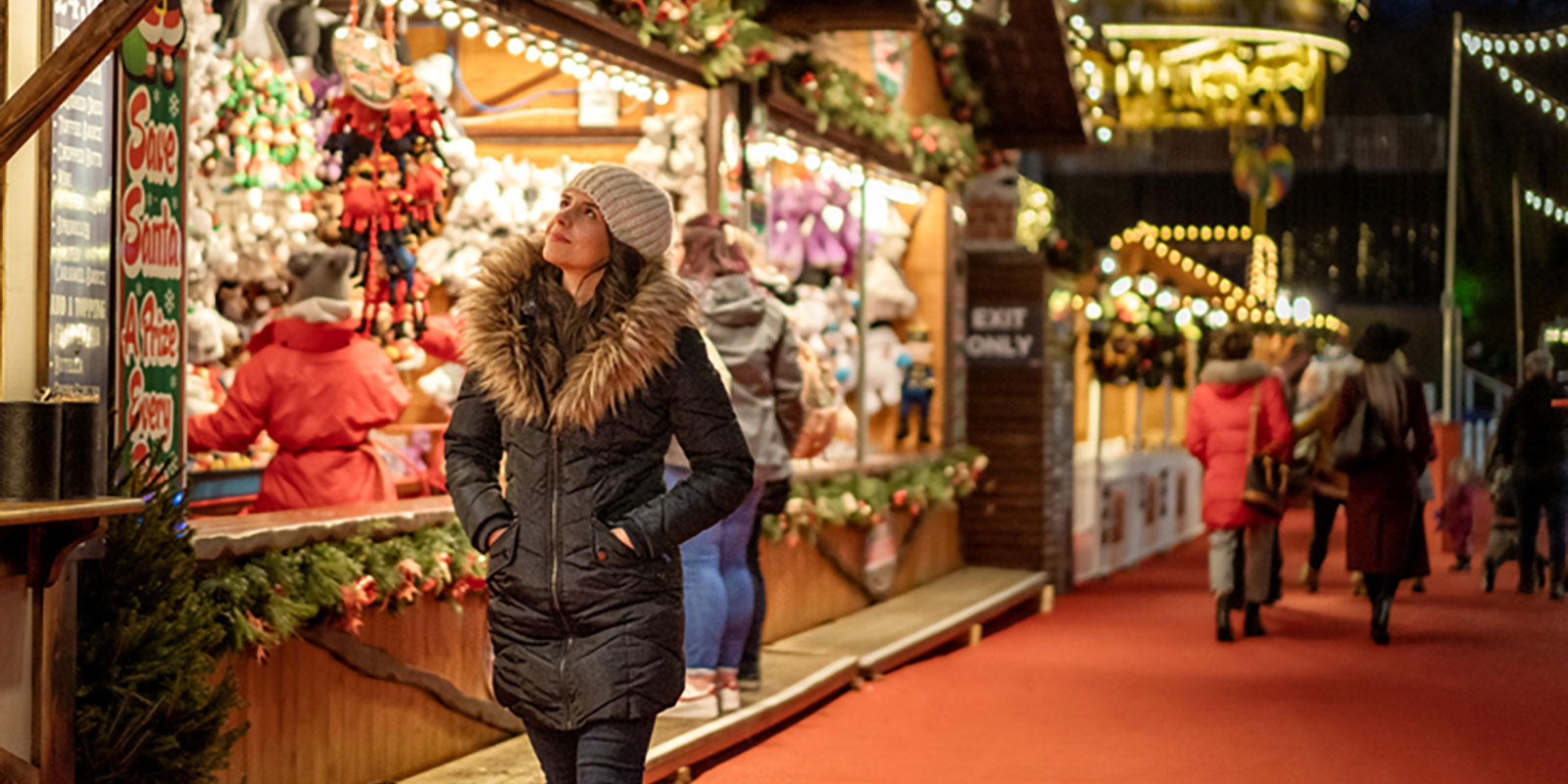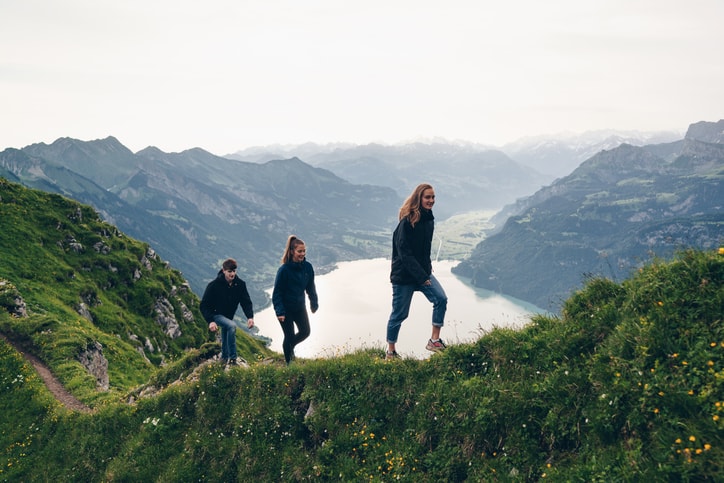Wednesday, December 11, 2024
Promoting local, organic and artisanal products to reduce the carbon footprint, reduce waste or the use of renewable energy are some of the key elements for making Christmas markets more sustainable
Christmas is the time of year that brightens up cities, lights up streets and energizes the local economy with various activities. As a result, it generates a significant rise in consumer spending, with an average increase of 12% in each purchase act, as revealed by a study prepared by Kantar. To add to that, Spain's electricity system operator, Red Eléctrica, recorded a 3.8% rise in energy demand in December 2023 compared to the same month the previous year — with more than half of the electricity generated during that period coming from renewable sources.
On the other hand, the Christmas season showcases an opportunity to steer consumption toward more sustainable practices. And Christmas markets, a tradition deeply rooted in Europe, can play a vital role by featuring local, handmade, recycled, and second-hand products, boosting sustainability while empowering local producers and small businesses.
What creates a sustainable market?
In order to reduce the environmental impact, some Christmas markets have been setting up more sustainable practices for years. Lighting has evolved towards the use of renewable energies, as seen in the Christmas market in Cologne (Germany), powered by 100% renewable electricity - hydroelectric and wind - a measure which saves, according to its estimates, 152 tons of CO2. Or that of Madrid’s Plaza Mayor, one of the most emblematic in Spain, which will be lighted with sustainable energy for the first time in 2024.
There are other factors that contribute to moving in this direction, like measures aimed at minimizing waste, the use of recycled, ecological or biodegradable materials in decorations or the type of product on offer. Proximity products or "kilometer 0" link tradition with sustainability, in line with the Sustainable Development Goals. Providing local food and artisan goods offers both environmental as well as social benefits: it helps lower transportation-related emissions while stimulating the local economy and creating job opportunities in rural areas at the same time.
The European map of sustainable markets
With the aim of boosting responsible practices during the Christmas season, we have created a European tour of those markets, recognized by the Best European Destinations portal and which stand out for their respect for the environment.
-
Essen (Germany):
The city of Essen, recognized by the EU in 2017 as the European Green Capital, has maintained its commitment to sustainability, a philosophy that is also reflected in how it celebrates Christmas. Its international Christmas market ranks in first place as "Best sustainable Christmas market in Europe" in the scoring set up by European Best Destinations.
Powered 100% by renewable energy, it stands out for having replaced plastic dishes and bags with a deposit system for cups, mugs, and plates in which products are served. -
Maribor (Slovenia):
Slovenia's second-largest city, following the capital, holds official recognition as one of the country's “Green Destinations”. Their Christmas market is unique for its eco-friendly constructions and its commitment to avoiding the use of cut fir trees. Instead, it showcases its renowned traditional "living trees" planted in pots, which are decorated by children from local schools. To add to that, the stalls offer artisanal products and a cuisine that promotes sustainable packaging, such as cardboard and wood, reinforcing their commitment to the environment. -
Manchester (United Kingdom):
Manchester's Christmas markets aim to achieve zero carbon emissions by 2038. As part of its strategy, more than 80% of its traders are local; the rest, primarily sourced from Europe, foster local proximity and help reduce the carbon footprint. Its measures include the use of generators that run on HVO (hydrotreated vegetable oil or renewable diesel) - reducing emissions by up to 90% throughout the life cycle - along with renewable energies such as solar panels and rechargeable batteries. -
Vienna (Austria):
Although Vienna's Christmas markets have been a century-old tradition, as of 2022 they have been recognized as "ökoevents" or "ecological events", a prize awarded by the city to initiatives that adopt measures to reduce their environmental impact. This is evident from the fact that 75% of the products, food, and beverages offered are organic and come from sustainable crops. Karlsplatz market, formally known as Art Advent, is well known for its focus on local artisanal production. Moreover, their culinary offer is mostly organic. -
Vilnius (Lithuania):
Vilnius has been designated as the European Capital of Christmas for 2025 by the Christmas Cities Network, an organization geared toward promoting the cultural, social, and economic values of Christmas celebrations in Europe, which has the support of the European Parliament. This recognition underscores, among other elements, the market's "commitment to sustainability," reflected in its use of energy-efficient lighting and environmentally friendly decorations. Their Christmas trees are recognized the world over and more than 80% of the materials used in the decoration of their Christmas markets are recyclable or reusable, according to their City Council. -
Toulouse (France):
Toulouse excels in its commitment to sustainability, earning a spot among the most eco-conscious cities in France. It uses biodegradable utensils and has low-consumption LED lighting to minimize its energy impact. To add to that, it makes prevention of plastic and packaging waste a priority, integrating environmental criteria into its purchases and promotional batches. Sound is another of the event’s highlights, carefully adjusted to the environment to respect the local atmosphere and minimize noise pollution. -
Budapest (Hungary):
Topping the list of the most beautiful markets in Europe according to National Geographic, the Christmas market in Budapest blends tradition with a strong commitment to sustainability. It surprised everybody in 2022 by lighting its Christmas tree thanks to bikes which citizens could pedal, generating energy that also charged batteries to power the lights in the square along with solar panels. -
Berlin (Germany):
Berlin, renowned for hosting around 60 Christmas markets, features notable examples such as the market at Schönhausen Palace, which highlights sustainable products and local craftsmanship, and the one at Sophienstraße, which has been offering organic, sustainable, and fair trade goods — including eco-friendly mulled wine — for over two decades. This market stands out by providing a platform for young Berliners to showcase and sell their creations, focusing on sustainability, equality as well as environmental consciousness. In addition to these two, the groundbreaking Zero Waste Christmas Market, launched in 2023, focuses on local and ecological products, as well as workshops, debates and artistic activities which foster a more conscious and responsible approach.
¿Te ha parecido interesante?





